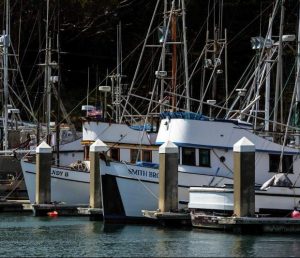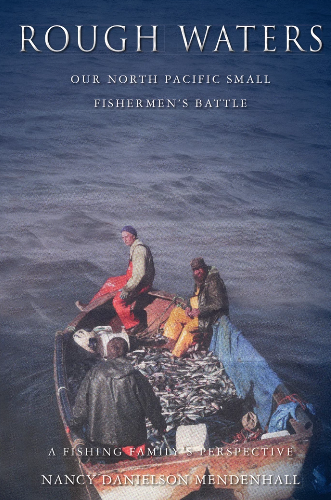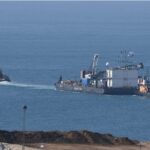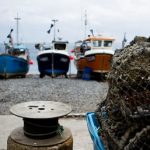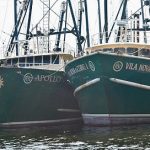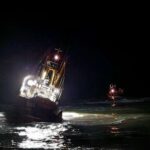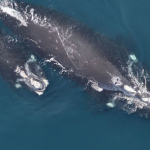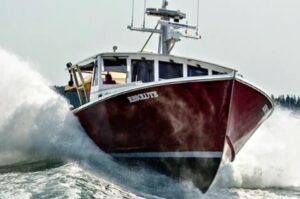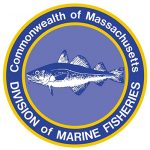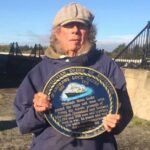Tag Archives: fishing families
Oregon Coast fishing families lean on Newport nonprofit following tough years
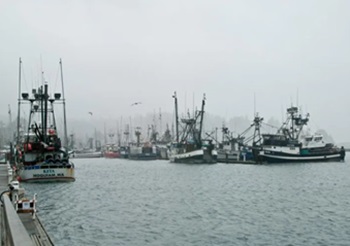 Newport, Oregon, resident Taunette Dixon knows how hard it can be to make ends meet in the fishing industry. “My family is a four generation fishing family,” Dixon said. “I married somebody that came from a four generation fishing family, so we’ve kind of been immersed in it all of our lives.” The last three years have been the worst Dixon’s ever had with the small boat the couple runs out of Newport. While she said her family is able to weather the challenging years, she’s seen need for aid grow through the nonprofit group she volunteers with, Newport Fishermen’s Wives. Fishing is a notoriously challenging and, at times, dangerous industry. But the pandemic hit nearly every industry hard in 2020 when the world economy came to a halt. The fishing industry was no different, and three years later it is still struggling to rebound. more, >>click to read<< 09:58
Newport, Oregon, resident Taunette Dixon knows how hard it can be to make ends meet in the fishing industry. “My family is a four generation fishing family,” Dixon said. “I married somebody that came from a four generation fishing family, so we’ve kind of been immersed in it all of our lives.” The last three years have been the worst Dixon’s ever had with the small boat the couple runs out of Newport. While she said her family is able to weather the challenging years, she’s seen need for aid grow through the nonprofit group she volunteers with, Newport Fishermen’s Wives. Fishing is a notoriously challenging and, at times, dangerous industry. But the pandemic hit nearly every industry hard in 2020 when the world economy came to a halt. The fishing industry was no different, and three years later it is still struggling to rebound. more, >>click to read<< 09:58
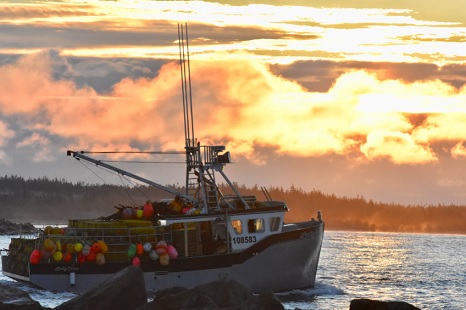
It’s not easy being the family left onshore when the lobster fishery starts
The knot in my stomach started as soon as I read the post that dumping day in the southwestern Nova Scotia lobster fishery was a go for the next day. Part of it was due to the fact that it was not a unanimous vote during that morning’s LFA 34 lobster industry conference call. Eleven port reps voted in favour of a Dec. 1 opening following a two-day delay, but seven were opposed. Truthfully, though, even if it had been a 100 per cent unanimous ‘yes’ vote, the knot in my stomach and the lump in my throat would still be there. How do I know? Because it’s there every single year. photos, >click to read< by Tina Comeau
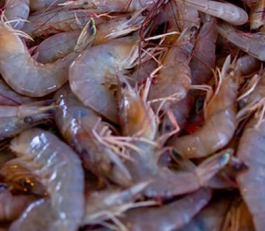
Jim Hightower: Can ‘Powerless Nobodies’ Fight the Corporate Powers?
The many sparkling bays along the Texas coastline of the Gulf of Mexico have long provided both a working-class living and a valued lifestyle for generations of shrimpers, oysterers and other fishing families. People and seafood, however, are not the only creatures here,,, But in the 1980s, a strange and invasive new critter entered Lavaca Bay,,, This marauder was not some monster from the deep but a massive, 45,000-acre factory looming over Lavaca Bay. It is the Formosa Plastics Corporation, founded by the richest man in Taiwan. >click to read< 17:29
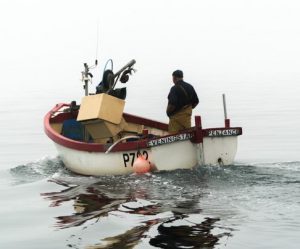
Small-scale fishing families are under threat.
In the UK their vessels make up 80% of the nation’s fishing fleet yet they receive only 4% of the total national fishing quota. On the other side of the Atlantic, Newfoundland fisheries have been downsized in response to fisheries closures in the early 1990s. In both locations people who depend upon this industry have been left vulnerable. This includes thousands of women who are vital to the survival of small-scale fishing businesses. To explore and raise their profile, Women in Fisheries’ research project will examine women’s roles, identities and wellbeing in fishing families. >click to read<11:00
Buying Out Maine’s Fishing Communities? by Ben Martens
Fisheries represent a unique opportunity to think about our natural environment and how it interacts with society. Fish are the last of our wild food sources and, because of their cultural importance to New England, there is still a vast diversity in how these resources are managed, harvested and even consumed. Within the management system, there is uncertainty surrounding this resource because it is highly mobile and out of sight; it is much more difficult to count fish,,,,,,
http://www.workingwaterfront.com/articles/Buying-Out-Maines-Fishing-Communities/15009/






